How I became a writer
Ever wondered how I made the leap to writing books, comics and audio? Here's the inside scoop!
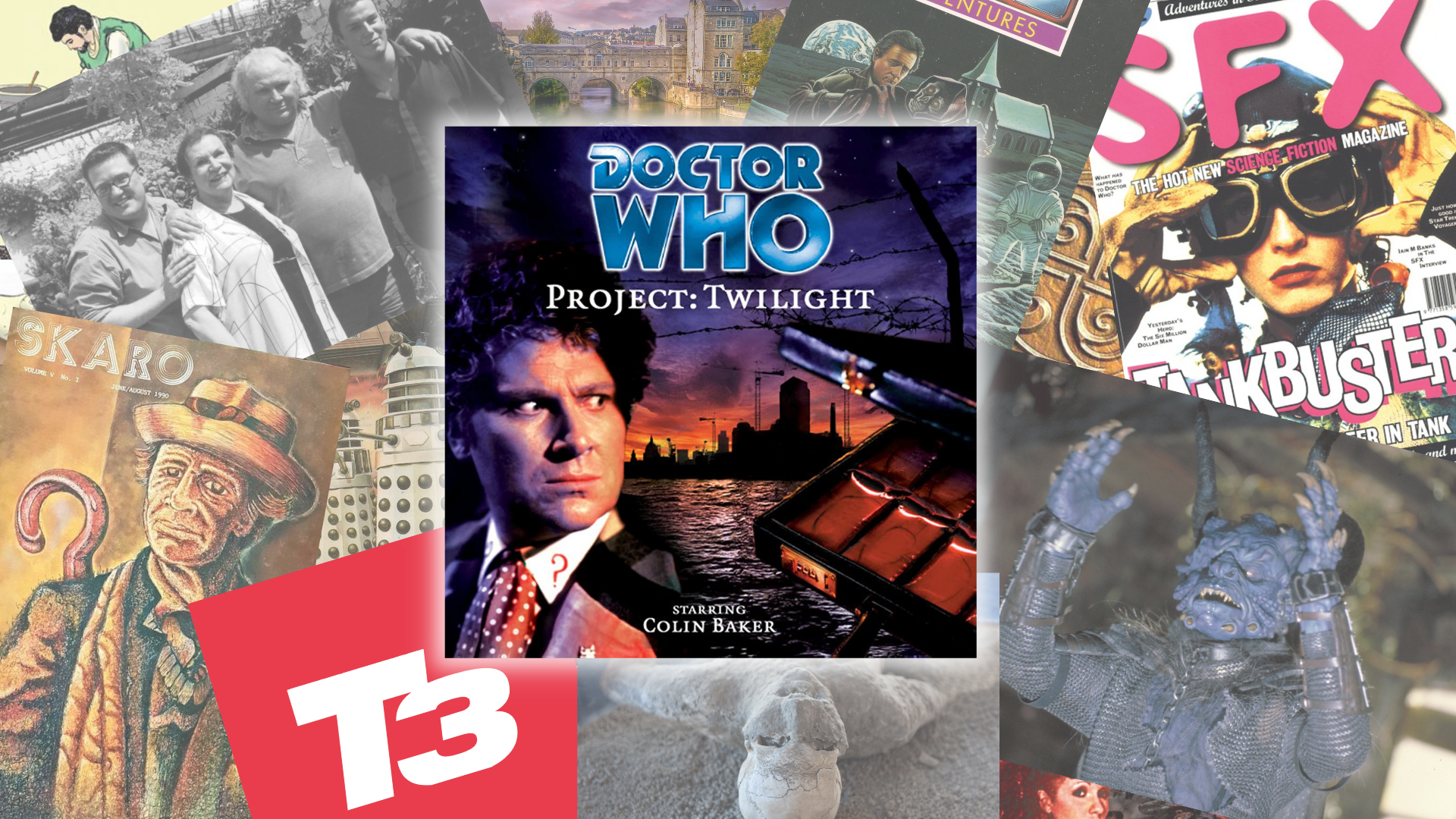
A few weeks ago, Mark Sutter posed a simple question during my birthday AMA.
How did you become a writer?
It’s a good question, and one I thought I’d answer in a longer post, especially as we have new subscribers who may not have heard the story before!
(Hello, new subscribers! I’m so happy to have you here!)
So, how did I become a writer? The answer is… Doctor Who fanzines.
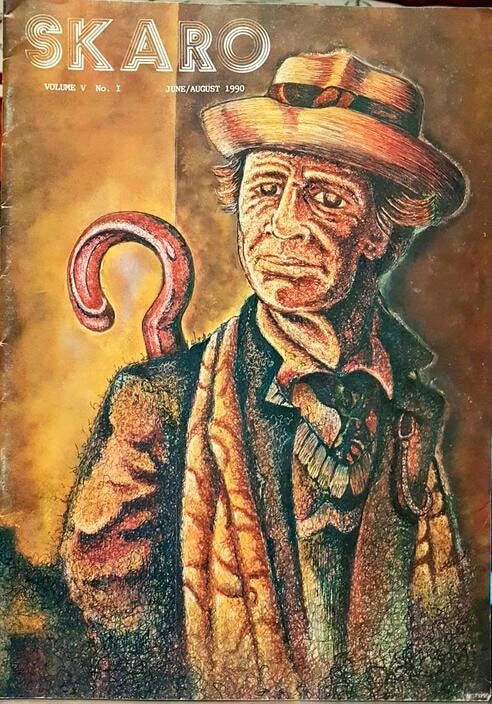
When I was kid, there were a host of Who zines, some glossy, some photocopied. I was forever sending off hastily typewritten articles in the hope they would see print. Most disappeared into the ether, but some made it through. The thrill of seeing my name in print sparked something deep inside me, and I wanted more.
And so I continued, graduating into submitting what we now know as fan fiction. It wasn’t polished… and it definitely wasn’t good… but at least a few pieces made the grade, appearing in fanzines of all shapes and sizes. I’d spend every hour I could, hunched over my Amstrad PCW, churning out over-wrought, melodramatic prose that would now make my internal editor weep.
But something was happening in the wider Doctor Who circles. The show itself was dead, settling into its wilderness years, but that didn’t mean there weren’t any new stories. We were about to enter a new era of novels, comics and audio drama, with a bevvy of familiar names making the leap from fanzine writing to professional work.
One of these was Paul Cornell, now a friend of mine with a substack of his own offering original fiction and a sea of other credits. Back then, I only knew him from his byline in fanzines such as Skaro and Queen Bat. Then, in 1991, Virgin Publishing launched the Doctor Who New Adventures, a series of novels continuing the exploits of Sylvester McCoy’s Seventh Doctor. Paul was there right at the beginning, with Timewyrm: Revelation, the fourth book in the range.
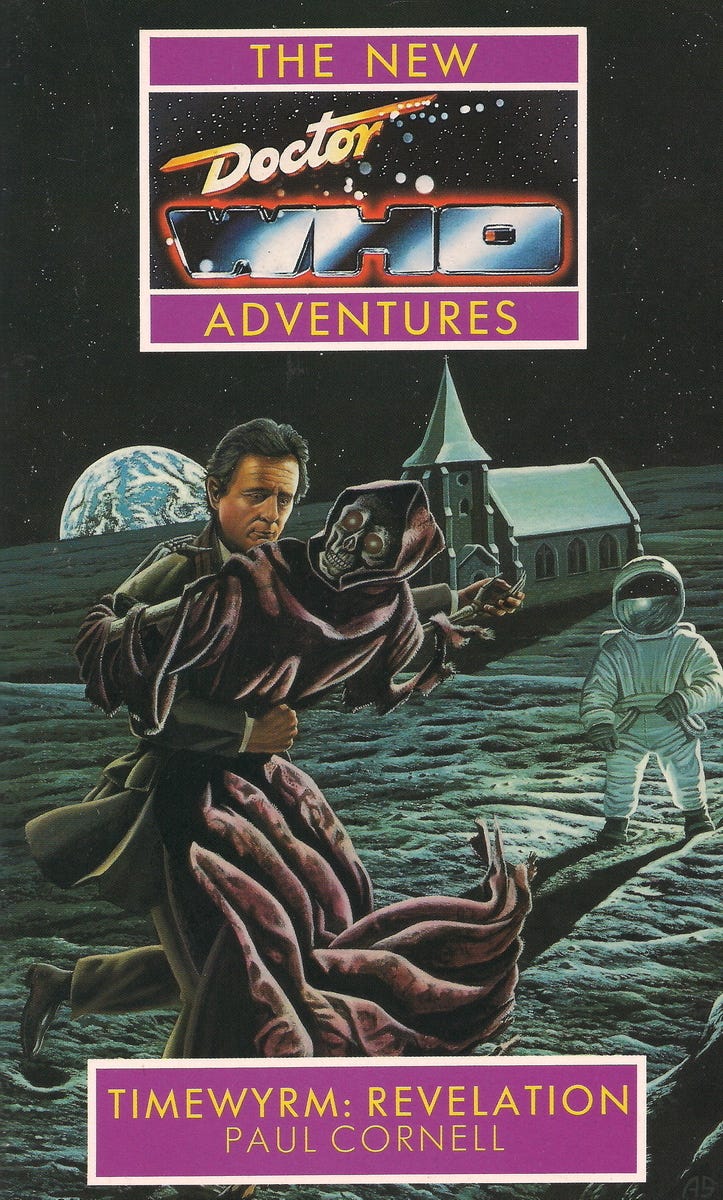
I consumed it in one sitting, wondering if I could make a similar leap. Was this my chance to become a ‘proper’ writer?
My first attempt was a dreadful pitch to Doctor Who Magazine for a four-part comic adventure. And when I say dreadful, I mean AWFUL! If I remember correctly, the Doctor was to encounter the Daleks, who were attempting to mine an alien world to unlock a vast energy source. But, as everyone’s favourite Time Lord would discover, the energy source was none other than the Destroyer, the blue-skinned Eater of Worlds from Ben Aaronovitch’s Battlefield.
And why was the Destroyer trapped in a planet-sized cell? Because the Time Lords had imprisoned him there after he tried to snack on Gallifrey, of course.
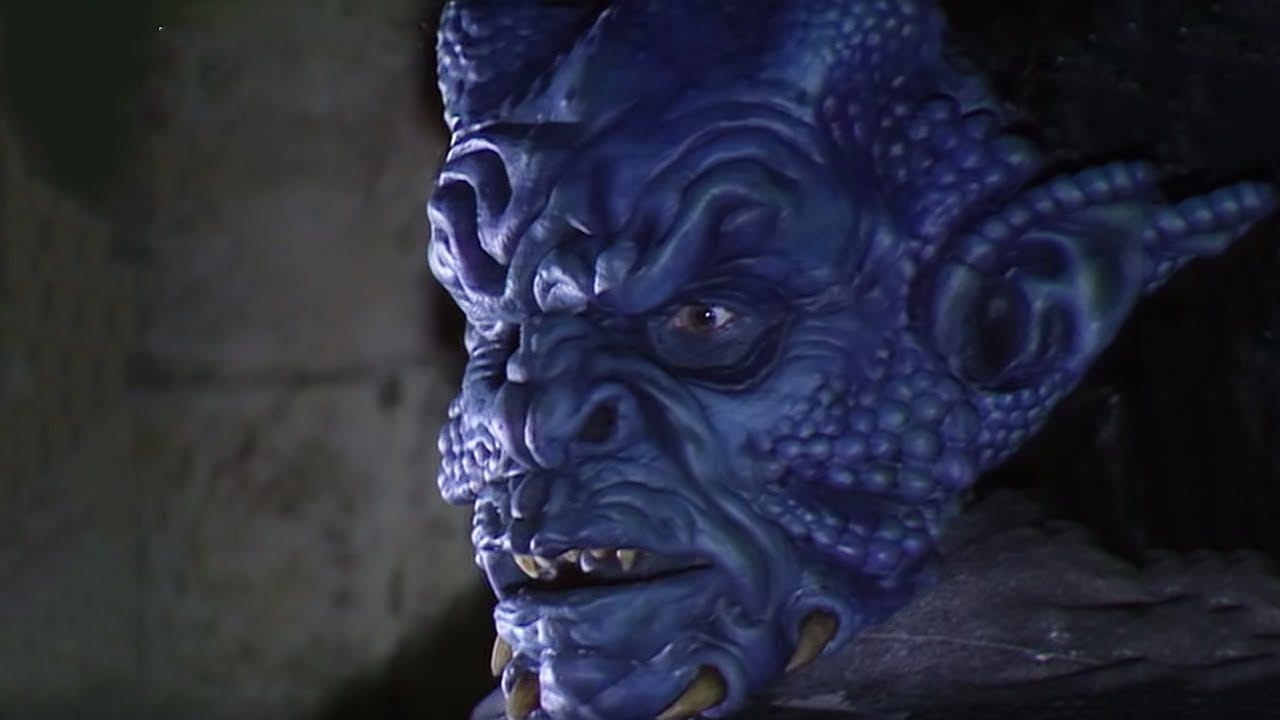
I can’t recall if I had the Doctor teaming up with the Cybermen to save the day, but I’m sure it crossed my mind. Needless to say, I soon received a rejection letter in the mail, my dreams of becoming the new John Wagner or Terrance Dicks temporarily crushed.
Returning to the West Country after university, I noticed an advert for a job at Future Publishing, a magazine company best known for a host of gaming and craft titles. The role was ‘Production Coordinator’ and I had no idea what the job entailed. However, I figured getting a job writing for one of Future’s many magazines would be easier if I was already inside the building. It turns out that I made a pretty lousy Production Coordinator – someone who helped put the magazine together, gathered the pages, managed advertising copy and eventually sent the film to the printers. (Yes, it was film in those days, not files. I really am that old.)
A week into the job, a new magazine was announced – SFX, a monthly guide to all things science fiction, fantasy and horror. I immediately bombarded the editorial team for freelance gigs and – largely to make me go away – they gave me a heap of incredibly dense fantasy novels to review. I needed to read every page and deliver a 50-word review of each tome, ideally by 9am Monday morning. This was Friday night and I’m sure they thought I’d run for the hills, never to be seen again. Instead, I locked myself away and consumed the novels in a single weekend, barely stopping to eat, let alone sleep. Sure enough, the review hit the editor’s desk - or at least his inbox - first thing Monday, as promised. They wouldn’t get rid of me that easily.
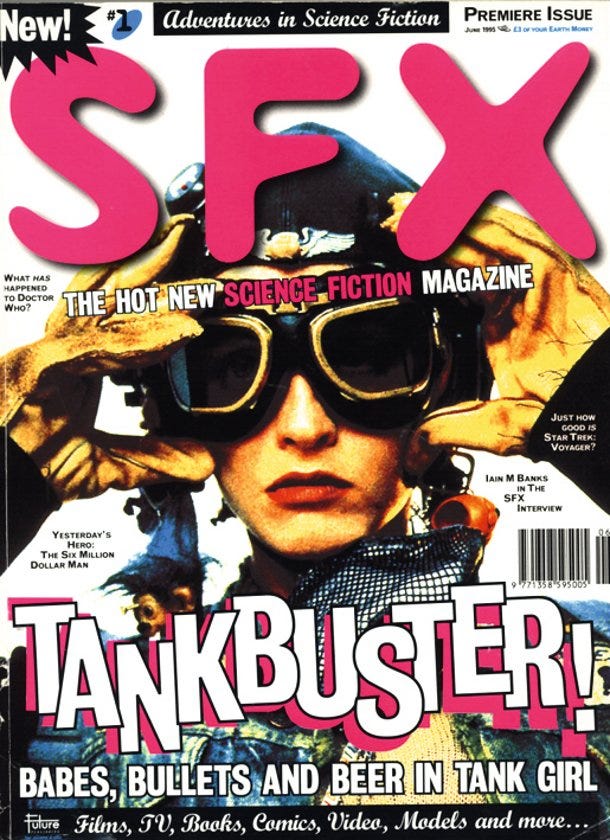
Gradually, I started to pick up regular review work on SFX and any other magazine that would throw me a bone, even if I didn’t know anything about the subject matter. I loved those gigs above all, as they gave me a chance to a) research as many subjects as possible and b) see if I could write with enough authority to convince the editors that I knew what I was talking about! Fake it until you make it? You bet!
All the time, I kept working in production, trying not to get sacked before I could make my name as a freelancer. It worked (despite a couple of VERY near misses that almost had me packing up my desk) and I eventually scored an interview for T3, a fledgling technology magazine. I got the job as staff writer and one of my first assignments was writing a story about a new-fangled piece of tech, the digital versatile disc or DVD to its friends.
I told you this was a long time ago!
I was still writing fiction in my spare time but hadn’t plucked up the courage to send it anywhere, although one of my teammates, a fellow Who fan by the name of Steve O’Brien, told me about a pal of his who was moving from Halifax to Bath. Like me, Mark Wright had dreams of writing for Doctor Who. We should meet up. Maybe we could work on something together. And meet we did, in the Garrick’s Head pub next to Bath Theatre Royale1. Before long, we’d hit upon an idea for a Doctor Who novel, which we duly submitted to BBC Books, back when there were slush piles for aspiring authors.
Our proposed novel - The Fires of Darkness - was a Fifth Doctor story set in Pompei the day Mount Vesuvius erupted2. I had just returned from a jaunt to Italy and was struck by the eerie plaster casts made of the volcano’s many victims. (You can read about them here. They really are incredible!)
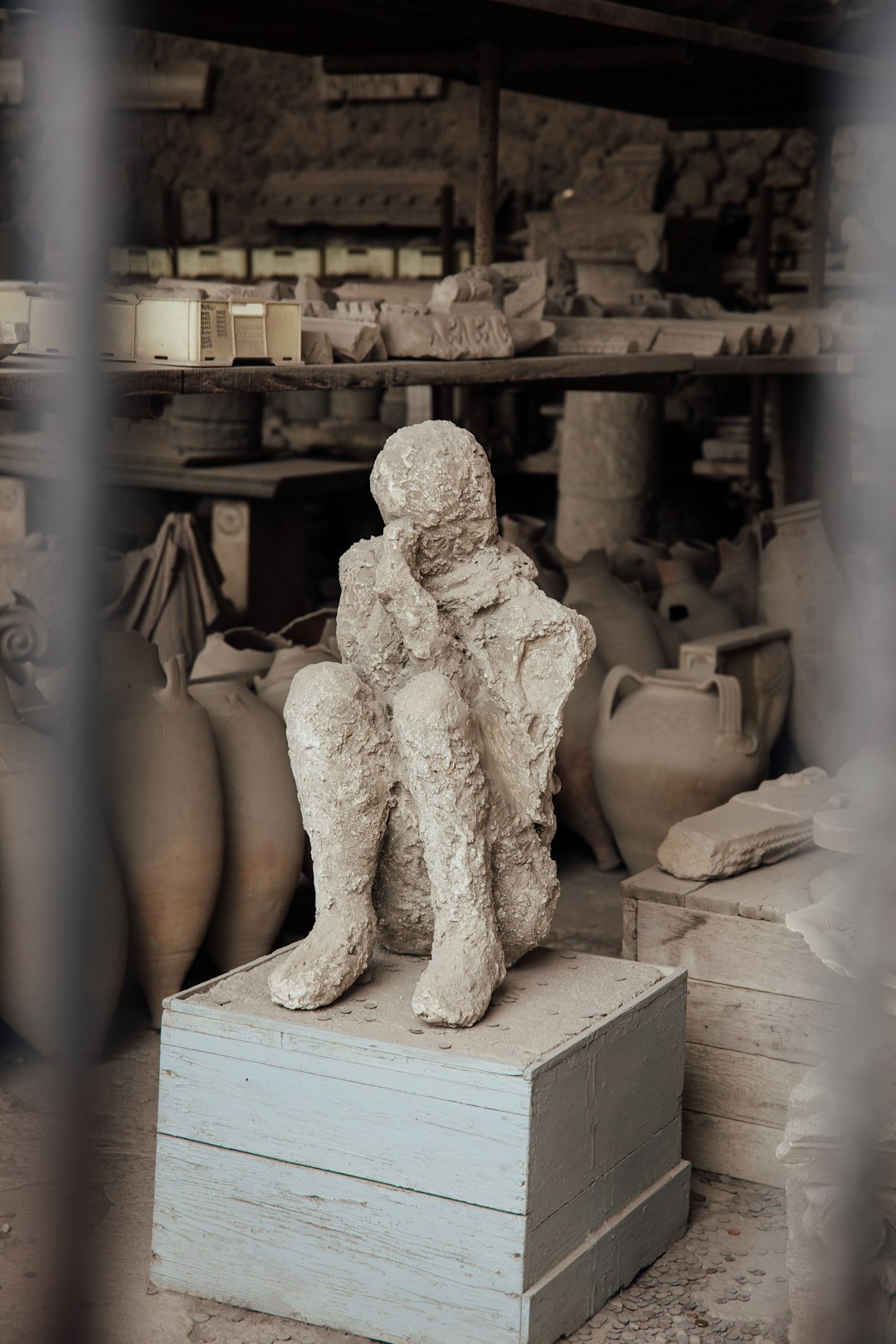
They got me thinking: What if an archaeologist poured plaster into Pompeii’s calcified ash and was rewarded with a cast of a large Police Telephone Box?
Unlike my failed pitch for Doctor Who Magazine, series editor Justin Richards received The Fires of Darkness exceptionally well, and we started to discuss options. This was going to happen. We were going to become published Doctor Who writers. Cue much giddiness and leaping around in joy… before the axe fell. Justin was about to commission us when he received word that Big Finish Productions, a new company that was producing original Doctor Who audio dramas featuring the original cast, had just greenlit a play entitled… wait for it… The Fires of Vulcan set in Pompeii on the day Mount Vesuvius erupted. It's opening even featured archaeologists unearthing the TARDIS in modern-day Italy.
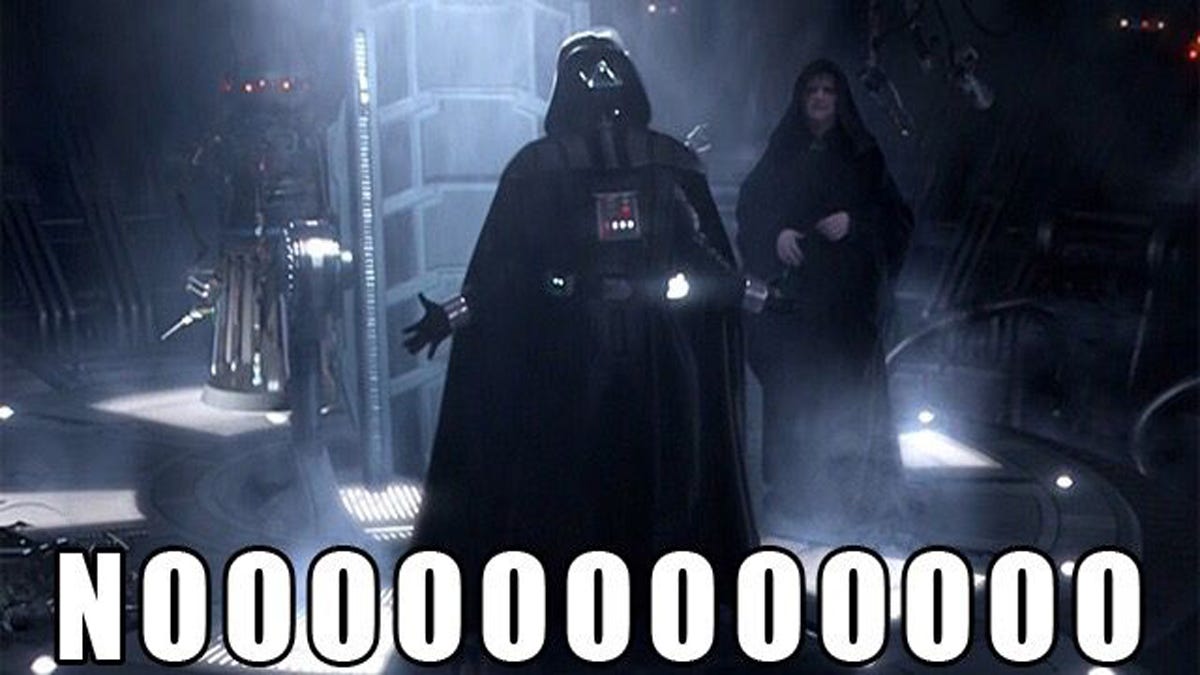
Justin, quite understandably, said that he couldn’t commission something so similar. We were crushed… but then something rather wonderful happened. Gary Russell, the Big Finish producer, got in touch to say he’d heard what had happened and felt awful. Would we be interested in pitching a Doctor Who audio drama instead?
The answer was yes, and the result was Doctor Who - Project Twilight, a vampire adventure starring Colin Baker as the Sixth Doctor, the first of many audio dramas I wrote with Mark, who is still a very dear friend of mine all these years later.
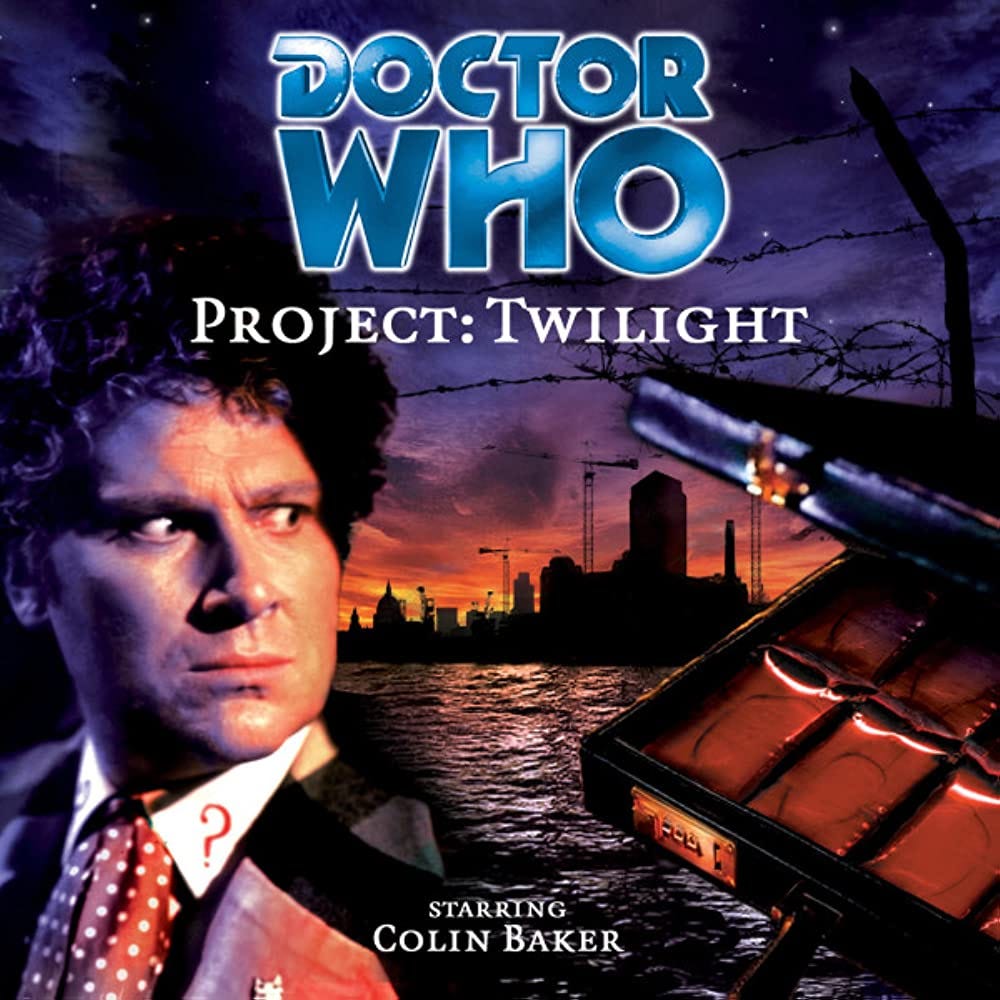
It was also my first step along the path I’ve been treading ever since, a journey that saw me continuing to write fiction as a side hustle before giving up the day job in 2010. And I’ve never looked back!
As for Project: Twilight… well, watch this space, I'll be covering this in a future post!
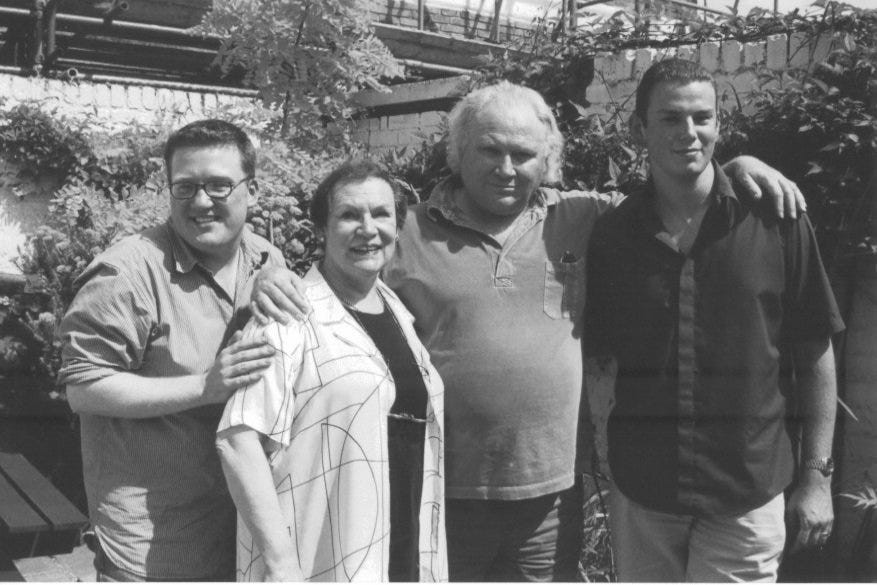
I’ve since checked with Mark and found out this was Easter 1999! 24 years ago. We still talk pretty much every day and he’s the godfather of my eldest daughter, Chloe. ↩
The title came from SFX features editor, Nick Setchfield, who was sitting at the next table while we brainstormed the story in the Garrick’s Head pub. Listening to what we were discussing, he leant over and said: “You should call it the Fires of Darkness,” which we did! ↩

